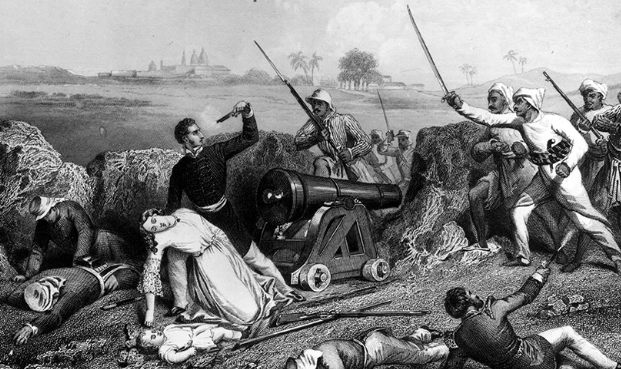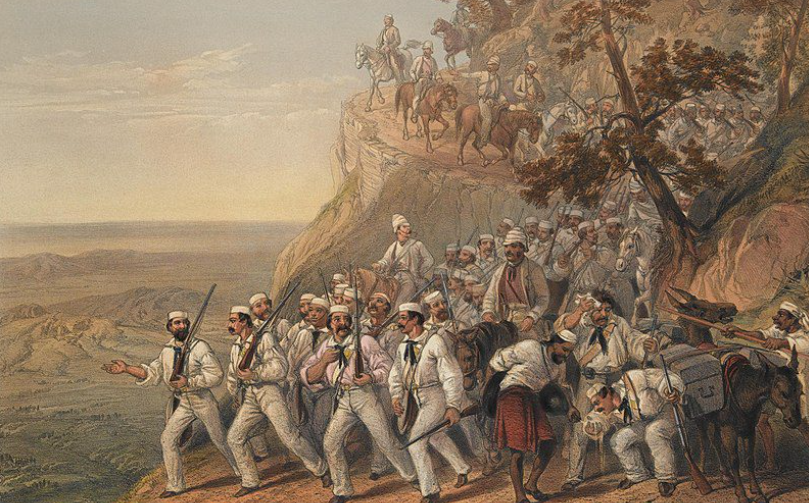Your cart is currently empty!



The revolt of 1857, often described as India’s First War of Independence, was much more than a historical uprising. It was a movement that reflected anger, unity, betrayal, sacrifice, and the desire for self-rule. While the immediate outcome may not have been freedom, the revolt became a turning point in India’s long struggle against colonial domination. Even today, the lessons from this uprising remain relevant in leadership, unity, resilience, and the fight for justice.

The revolt of 1857 began as a mutiny of Indian soldiers (sepoys) in the British East India Company’s army. What triggered it was the infamous use of greased cartridges believed to be coated with cow and pig fat, offending both Hindu and Muslim religious beliefs. However, beneath this spark lay deeper causes—economic exploitation, unjust land policies, political annexations, and cultural interference. It was not just a military rebellion; it was a collective outcry against foreign oppression.
The revolt of 1857 saw the rise of fearless leaders who are still remembered for their courage. Rani Lakshmibai of Jhansi became the symbol of resistance, fighting valiantly until her last breath.Figures such as Bahadur Shah Zafar, Kunwar Singh, Tantia Tope, and Nana Sahib galvanized countless followers through their courageous defiance during the uprising. Though the rebellion was scattered across regions like Delhi, Kanpur, Lucknow, and Jhansi, the common thread was the spirit of freedom.
One of the most powerful lessons the revolt of 1857 teaches us is the strength of unity. For the first time, Hindus and Muslims came together, setting aside religious differences to fight a common enemy. Though brief and fragile, this unity showed that collective strength can defy powerful rulers. In a divided world, this unity reminds us what’s possible when we rise above differences.
The revolt also highlights the importance of strong and determined leadership. Figures like Rani Lakshmibai and Tantia Tope showed that true leaders inspire not through authority but through courage, sacrifice, and the will to fight for others. Modern leaders, whether in politics, business, or community service, can draw from this lesson—leadership rooted in conviction creates lasting impact.
Even in defeat, the flames of the 1857 uprising kindled a spirit of resilience that refused to fade. The sacrifices of countless fighters did not go in vain. Their determination sowed the seeds of nationalism and inspired future generations to continue the freedom struggle. The resilience displayed then is equally relevant today, reminding us that setbacks are not the end but a call to persevere.
Another important takeaway is the role of planning and coordination. One of the main reasons the revolt of 1857 failed was the lack of a unified strategy and communication. While bravery was abundant, organization was weak. This teaches us that passion must be matched with planning. Whether in movements, businesses, or personal goals, success depends on both courage and careful execution.
The revolt also underlines the importance of justice and respect for cultural identity. The uprising was not merely about military grievances; it was about defending traditions, beliefs, and dignity. Even today, societies thrive when justice is upheld, and people’s identities are respected. Ignoring these principles leads to unrest and alienation.
Why should the revolt of 1857 matter to us now? Because history is not just about remembering events; it is about learning from them. In workplaces, communities, and nations, unity, leadership, resilience, and justice are as essential as they were in 1857. The courage of those who fought reminds us that meaningful change requires sacrifice, determination, and the will to stand up against wrongs.

The revolt of 1857 may not have brought immediate independence, but it was the first great spark of India’s freedom movement. Its lessons in unity, leadership, resilience, strategy, and justice are timeless. In a world still grappling with inequality, division, and injustice, these hidden lessons encourage us to rise with courage and wisdom. Remembering the revolt is not just about honoring the past—it is about applying its wisdom to build a stronger future.
Leave a Reply